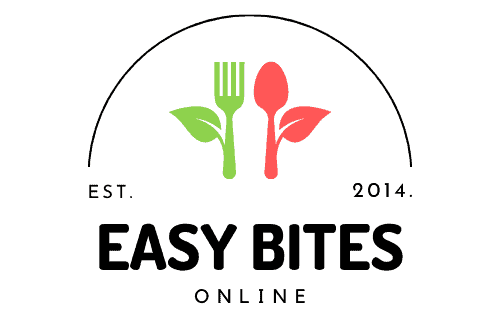27 Top Predigested Food List For Sensitive A Stomach (2023)
Are you struggling with hormone imbalance and searching for natural ways to boost your hormone health, specifically your reproductive hormones like progesterone?
Maintaining optimal progesterone levels is crucial. Low progesterone can lead to symptoms like irregular periods, mood swings, and even fertility issues. Hormone imbalance, specifically low estrogen levels during ovulation, can contribute to these symptoms.
But fret not! Discover the ultimate predigested food list for a sensitive stomach. Improve digestion and find relief with these easy-to-digest options. By making simple lifestyle changes, you can regulate your progesterone production and restore hormone balance, including hormones such as estrogen levels, which can be affected by an imbalance in the menstrual cycle.
In this concise guide, we will delve into the factors that affect hormone health, such as estrogen dominance, stress levels, and the impact of xenoestrogens on ovulation. We will also uncover how certain foods can promote healthy hormone production and support fertility, including natural progesterone, to regulate estrogen levels and support the growth of a thick uterine lining for successful ovulation.
So if you’re ready to take control of your hormone health naturally and maintain a balanced level of hormones such as estrogen and progesterone, let’s dive in and learn more about how to support ovulation!
Importance of Nutrients for Progesterone Boost
Nutrients play an important role in promoting healthy levels of hormones, including progesterone and estrogen. These hormones are essential for the body’s overall well-being. Adequate intake of nutrients, such as protein, can support the production and balance of these hormones. This is especially crucial during ovulation when hormone levels fluctuate.

Deficiencies in specific vitamins and minerals can significantly impact hormone health, specifically progesterone production. Hormones, including estrogen levels and ovulation, are essential to our body’s functions.
By understanding the specific nutrients that support optimal hormone health and estrogen synthesis, you can take steps to ensure your body has what it needs to maintain hormonal balance.
One essential nutrient that plays a crucial role in boosting progesterone is vitamin C. This vitamin helps stimulate progesterone production by supporting the adrenal glands’ function, which is involved in hormone regulation.
Additionally, vitamin C also aids in regulating estrogen levels in the body. Incorporating foods rich in vitamin C, such as citrus fruits, strawberries, and bell peppers, into your diet can help promote healthy progesterone and estrogen levels in your body.
In addition to vitamin C, vitamin E plays a vital role in estrogen synthesis. This powerful antioxidant helps protect the cells responsible for producing estrogen and natural progesterone from damage, especially when there are low progesterone levels.
Foods like almonds, spinach, and sunflower seeds are excellent sources of vitamin E that can support optimal progesterone levels in the body. These foods also contain estrogen, which is essential for hormonal balance.
Furthermore, certain minerals are essential for maintaining healthy estrogen and natural progesterone levels. Additionally, these minerals can help address low progesterone levels. Zinc, for example, is involved in the body’s estrogen and progesterone metabolism.
Foods like oysters, beef, and pumpkin seeds are excellent sources of zinc that can contribute to balanced hormone production, including estrogen and natural progesterone. These foods are especially beneficial for individuals with low progesterone levels.
Another mineral worth mentioning is magnesium. Magnesium supports numerous bodily functions, including hormone regulation. Estrogen aids in converting cholesterol into pregnenolone, an essential precursor for various hormones, including progesterone.
Dark chocolate, avocados, and nuts are all delicious magnesium sources that balance natural progesterone and estrogen levels.
By recognizing the importance of these nutrients, such as estrogen, and incorporating them into your diet through food choices or supplements, you can help boost your body’s natural progesterone production. Maintaining proper nutrient intake is crucial in supporting hormonal balance and overall well-being, especially concerning estrogen and natural progesterone.
So remember: naturally nourish your body with foods rich in vitamins C and E and minerals like zinc and magnesium to promote healthy progesterone levels.
Essential Foods That Increase Progesterone
Boosting progesterone levels naturally can be achieved by incorporating specific foods into your daily meals. These foods possess hormonal properties that help enhance progesterone production in the body. You can support your hormonal balance and overall well-being.
Discover a variety of foods that naturally enhance progesterone levels:
- Avocados: Rich in essential amino acids, avocados promote progesterone synthesis.
- Salmon: Packed with omega-3 fatty acids, salmon aids in regulating hormone levels, including natural progesterone.
- Spinach: High in magnesium and vitamin E, spinach supports progesterone production.
- Lentils: A great source of plant-based protein, iron, and natural progesterone, lentils contribute to healthy hormone function.
Learn about the hormonal properties of specific fruits, vegetables, and grains:
- Berries: Blueberries, raspberries, and strawberries are packed with natural progesterone and antioxidants that support hormone balance.
- Broccoli: This cruciferous vegetable contains Indole-3-carbinol, which helps regulate estrogen levels and is beneficial for natural progesterone.
- Quinoa: Rich in vitamins B6 and E, quinoa promotes progesterone synthesis.
Explore different dietary options to incorporate these foods into your daily meals:
- Start your day with delicious avocado toast topped with smoked salmon for a nutritious breakfast. This healthy meal is a great way to incorporate natural progesterone into your diet.
- Whip a spinach salad with lentils for a hormone-balancing lunch option enriched with natural progesterone.
- Incorporate natural progesterone-rich berries into smoothies or enjoy them as a snack throughout the day.
- Add broccoli, a natural progesterone-rich vegetable, to stir-fries or roast it as a side dish for dinner.
- Replace regular grains with quinoa, a natural progesterone-rich option, in salads or as a side dish.
By incorporating these essential foods into your diet regularly, you can naturally boost your progesterone levels and support hormonal health. Remember to consult a healthcare professional for personalized advice regarding your needs and goals, including natural progesterone.
Magnesium-Rich Foods for Progesterone Support
Did you know that magnesium plays a crucial role in progesterone production? This essential mineral supports overall hormonal health and helps balance natural progesterone hormone levels.
Incorporating magnesium-rich foods into your diet can boost progesterone levels and promote optimal hormone function.
Here are some key points to consider:
- Understanding the relationship between magnesium and progesterone production: Magnesium is involved in numerous enzymatic reactions that contribute to the synthesis and release of progesterone.
- It helps convert cholesterol into pregnenolone, a precursor to progesterone. Magnesium aids in maintaining the proper functioning of the corpus luteum, which produces progesterone during the menstrual cycle.
- Discovering a range of magnesium-rich foods: Fortunately, plenty of delicious options are available to increase your natural progesterone and magnesium intake. Consider adding these foods to your diet:
- Dark leafy greens such as spinach and kale.
- Nuts and seeds like almonds, cashews, pumpkin seeds, and flaxseeds.
- Legumes,s including black beans, chickpeas, and lentils.
- Whole grains like quinoa and brown rice.
- Avocados.
Learning how incorporating these foods supports overall hormonal health: Regularly consuming magnesium-rich foods gives your body the necessary building blocks for optimal hormone production.
Adequate levels of progesterone help regulate menstrual cycles, support fertility, reduce premenstrual syndrome (PMS), and maintain a healthy pregnancy.
Boosting your progesterone naturally doesn’t have to be complicated or expensive. You can effectively support your hormonal health by incorporating magnesium-rich foods into your daily meals.
Remember to consult with a healthcare professional if you have any specific concerns or conditions related to hormone balance.
So why wait? Start adding these magnesium-rich foods to your diet today and experience the benefits of balanced hormone levels. Your body will thank you!
Zinc Sources to Boost Progesterone Levels
Zinc plays a crucial role in promoting healthy progesterone synthesis and balancing hormones. You can naturally support your progesterone levels by incorporating zinc-rich foods into your diet. Here are some excellent sources of zinc that you can consider:
- Oysters: These delicious mollusks are not only known for their aphrodisiac properties but also for being an excellent source of zinc.
- Pumpkin seeds: Packed with nutrients, pumpkin seeds offer a convenient and tasty way to increase your zinc intake.
- Beef: Enjoy a juicy steak or lean beef cuts, which provide substantial zinc.
- Chickpeas: Whether in salads or hummus, chickpeas are a versatile option containing fiber and zinc.
It is essential to note the recommended daily intake of zinc varies depending on factors such as age and sex. The recommended daily information for adult men is around 11 mg, while adult women need approximately 8 mg.
However, it is advisable not to exceed the upper limit of 40 mg daily to avoid potential risks associated with excessive zinc supplementation.
L-arginine and Its Impact on Progesterone
L-arginine is an amino acid that plays a crucial role in progesterone production within the body. By understanding how L-arginine affects progesterone levels, you can make informed choices about incorporating it into your diet.
L-arginine offers several benefits:
- Enhanced Progesterone Production: L-arginine stimulates the release of growth hormone, which in turn promotes the production of progesterone. This amino acid acts as a precursor for nitric oxide, which helps regulate hormone levels.
- Natural Sources: Incorporating L-arginine-rich foods into your diet can boost progesterone levels. Some examples include:
- Meat: Beef, chicken, and pork
- Seafood: Tuna, shrimp, and salmon
- Legumes: Peanuts, lentils, and chickpeas
- Seeds: Pumpkin seeds and sesame seeds
- Additional Health Benefits: Apart from its impact on progesterone production, consuming L-arginine offers other health advantages such as:
- Improved blood circulation
- Enhanced immune function
- Regulation of blood pressure
Increasing your L-arginine intake through dietary sources or supplements can support healthy progesterone levels while reaping these additional health benefits.
Incorporating foods rich in this amino acid can be a simple yet effective way to boost progesterone production naturally. So consider adding meat or seafood to your meals or snacking on legumes and seeds for a well-rounded approach to supporting hormonal balance.
Remember to consult a healthcare professional before making significant changes to your diet or starting any new supplements to ensure they align with your needs and circumstances.
Boosting progesterone doesn’t have to be complicated. By understanding the impact of L-arginine on progesterone production, you can take proactive steps toward supporting your hormonal health.
Harnessing the Power of Progesterone-Boosting Foods
Now that you better understand the importance of nutrients for boosting progesterone levels, let’s dive into the essential foods that can help you achieve hormonal balance. Incorporating these foods into your diet can make a significant difference in supporting healthy progesterone production.
Firstly, focus on magnesium-rich foods such as leafy greens, nuts, and seeds. Magnesium plays a crucial role in hormone regulation and can enhance progesterone levels.
Secondly, include zinc sources like oysters, beef, and pumpkin seeds in your meals. Zinc is essential for progesterone synthesis and can help maintain optimal levels.
Lastly, consider adding L-arginine-rich foods like turkey breast and sesame seeds. L-arginine supports progesterone production by improving blood flow to the reproductive organs.
Incorporating these progesterone-boosting foods into your daily meals can provide natural support for hormonal balance. Remember to consult a healthcare professional or nutritionist for personalized advice based on your specific needs and goals.
27 Top predigested food list For Sensitive A Stomach (2023)
These foods are rich in nutrients such as zinc, magnesium, vitamin B6, and healthy fats, essential for hormone production and balance in the body. Additionally, many of these foods contain phytoestrogens, which are plant compounds that can help to balance estrogen and progesterone levels in the body.
- Avocados
- Walnuts
- Almonds
- Broccoli
- Brussels Sprouts
- Cabbage
- Cauliflower
- Kale
- Spinach
- Fish (especially salmon and mackerel)
- Chicken
- Turkey
- Beef (preferably grass-fed)
- Eggs
- Dairy (preferably organic or hormone-free, such as yogurt and cheese)
- Pumpkin Seeds
- Sunflower Seeds
- Chia Seeds
- Flaxseeds
- Quinoa
- Oats
- Lentils
- Chickpeas (Garbanzo Beans)
- Sweet Potatoes
- Beans (such as black beans and kidney beans)
- Pomegranates
- Berries (such as strawberries, blueberries, and raspberries)
Progesterone-Boosting Foods: A Path to Better Digestive and Hormonal HealthThe good news is that maintaining a healthy diet rich in essential nutrients can go a long way in boosting your endocrine system, including progesterone production. One of the best friends of your endocrine system is your digestive tract.
The gut flora, or beneficial bacteria in your digestive system, plays a significant role in hormone regulation: progesterone and Digestive Health.
It’s a good idea to start considering the health of your digestive tract when addressing hormonal imbalances, such as low progesterone. A healthcare provider may note the strong connection between gut bacteria and hormonal health.
For individuals with symptoms of SIBO (Small Intestinal Bacterial Overgrowth) or Irritable Bowel Syndrome, balancing progesterone levels can be crucial. Foods to Boost Progesterone and Digestive Health: Cruciferous Vegetables: These are high-fiber foods that are good for your digestive system and are known to support the immune system.
Examples include broccoli and cauliflower, which can aid the body in metabolizing and digesting grains and complex carbohydrates through the small intestine without creating acid reflux.
Fermented Food: Small amounts of fermented foods like sourdough bread and soy sauce can enhance gut health. The fermentation process involved in these foods adds good bacteria to the digestive tract. Bone Broth and Herbal Teas:
These are often recommended for those on an elemental diet, especially under medical supervision. Rich in essential nutrients, they are easy on the digestive tract, which helps the body to digest foods without burdening the digestive enzymes. Fresh Fruits and Vegetables:
Whole fruits and fresh vegetable options are a staple in any grocery store and are essential to good health. They are optimal foods rich in insoluble fiber, aiding in weight loss and keeping the large intestine healthy. Healthy Fats: In moderation, coconut milk, and peanut butter can support weight gain if needed and offer a host of nutritional values.Prebiotic Foods:
These nourish the gut microbiome, promoting the growth of beneficial bacteria. Examples include raw vegetables, whole-grain bread, and fibrous foods, which help the body digest complex proteins and other food substances. Avoid Ultra-Processed Foods:
For those having a hard time with their digestive problems or symptoms of inflammatory bowel disease, avoiding ultra-processed foods is the best way to alleviate stress on the GI tract and allow the gut bacteria to flourish.
Consulting a Healthcare Provider: It is essential to consult with a healthcare provider before making any significant changes, especially for those on a liquid diet or elemental formulas due to severe digestive issues.
The Power of Enzymes: According to enzyme research, including the works of Dr. Howell, metabolic enzymes play a crucial role in our digestive system. Consuming foods rich in natural enzymes on an empty stomach can aid the small intestine in absorbing essential nutrients more efficiently.
In different ways, the foods listed above contribute to gut health and may positively impact the nervous system, regulate blood sugar, and reduce the risk of heart disease. They are also likely to promote good bacteria and gut flora critical for body hormone balance.
Maintaining a balance between animal protein and plant-based options, ensuring a lot of fiber in the diet, and practicing food combinations in a way that works for the person can all contribute to digestive health and, by extension, a more balanced endocrine system. Remember, time and a holistic approach are sometimes needed for significant changes.
And while this guidance can help point you toward good choices, always consult a healthcare professional before making substantial changes to your diet.
FAQs
Can I rely solely on food to boost my progesterone levels?
While incorporating progesterone-boosting foods into your diet is beneficial, it’s important to note that individual results may vary.
Factors such as overall health, underlying medical conditions, and lifestyle choices can also impact hormone levels. It’s best to consult with a healthcare professional specializing in hormone health for personalized guidance.
How long does it take to see results from consuming these foods?
The time it takes to see noticeable changes in progesterone levels can vary from person to person. Consistency is critical when incorporating these foods into your diet. It may take several weeks or even months before you start noticing improvements in hormonal balance.
Can men also benefit from consuming these foods?
Absolutely! While the focus here has been on progesterone-boosting foods, these nutrients can positively impact men’s and women’s hormone health.
Men can also benefit from incorporating magnesium-rich, zinc-rich, and L-arginine-rich foods to support overall hormonal balance.
Are there any side effects of consuming these foods?
Generally, the foods mentioned are safe to consume and do not typically cause significant side effects when consumed in moderation. However, you must be aware of any food allergies or sensitivities.
If you experience any adverse reactions after consuming these foods, it’s best to consult with a healthcare professional.
Can I take supplements instead of relying on food sources?
While supplements can be an option for some individuals, obtaining nutrients from whole food sources is generally recommended whenever possible. Whole foods provide a range of additional beneficial compounds that work synergistically with the targeted nutrients.
However, if you’re considering supplements, it’s crucial to consult with a healthcare professional who can guide you based on your specific needs and circumstances.

Born and raised in a family of foodies, Georgia’s passion for cuisine was nurtured from a young age as she learned the intricacies of flavor and texture from her grandmother’s kitchen. As an adult, this early fascination blossomed into a full-fledged love affair with the culinary world.








